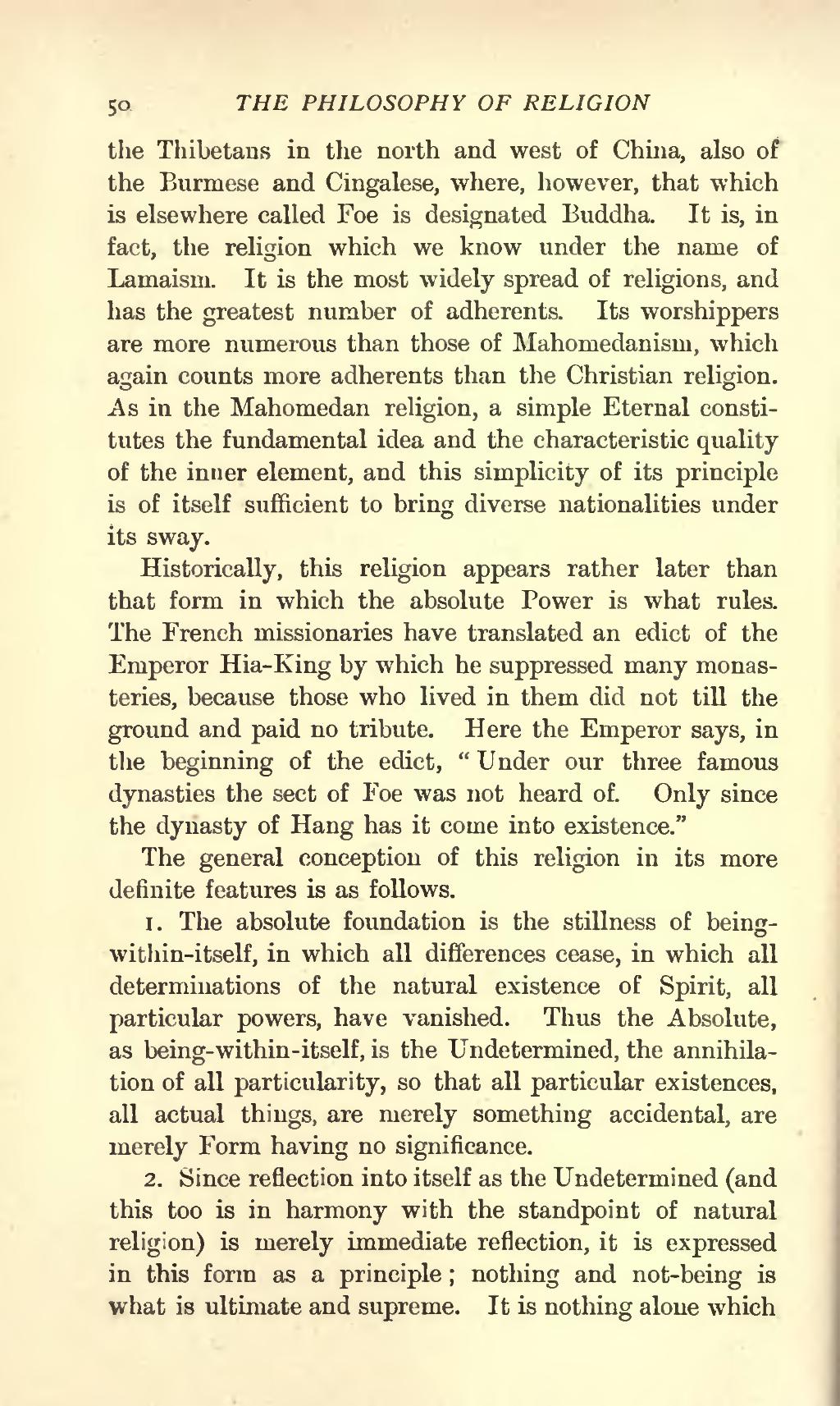the Thibetans in the north and west of China, also of the Burmese and Cingalese, where, however, that which is elsewhere called Foe is designated Buddha. It is, in fact, the religion which we know under the name of Lamaism. It is the most widely spread of religions, and has the greatest number of adherents. Its worshippers are more numerous than those of Mahomedanism, which again counts more adherents than the Christian religion. As in the Mahomedan religion, a simple Eternal constitutes the fundamental idea and the characteristic quality of the inner element, and this simplicity of its principle is of itself sufficient to bring diverse nationalities under its sway.
Historically, this religion appears rather later than that form in which the absolute Power is what rules. The French missionaries have translated an edict of the Emperor Hia-King by which he suppressed many monasteries, because those who lived in them did not till the ground and paid no tribute. Here the Emperor says, in the beginning of the edict, “Under our three famous dynasties the sect of Foe was not heard of. Only since the dynasty of Hang has it come into existence.”
The general conception of this religion in its more definite features is as follows.
1. The absolute foundation is the stillness of being-within-itself, in which all differences cease, in which all determinations of the natural existence of Spirit, all particular powers, have vanished. Thus the Absolute, as being-within-itself, is the Undetermined, the annihilation of all particularity, so that all particular existences, all actual things, are merely something accidental, are merely Form having no significance.
2. Since reflection into itself as the Undetermined (and this too is in harmony with the standpoint of natural religion) is merely immediate reflection, it is expressed in this form as a principle; nothing and not-being is what is ultimate and supreme. It is nothing alone which
